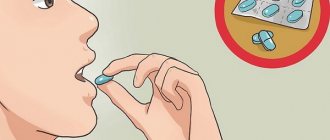The results of research by scientists around the world confirm that severe depression is diagnosed in every fifth inhabitant of the planet. This is a type of mental disorder that causes a feeling of depression and doom. It reduces ability to work and negatively affects general physical condition.
What is the disease characterized by?
Clinical depression is a pathology that affects people of different ages and physical health. It occurs frequently in adolescents and often provokes suicide.
The symptoms of this disease are characterized by a significant decrease in mood, loss of interest in work, communication, hobbies, deterioration of memory and attention. Signs of clinical depression are not limited to a depressed emotional state.
Symptoms of the disease include much more serious disorders that lead to social maladjustment.
Another term for clinical depression is major emotional distress. This condition is characterized, in general, by a decline in physical and mental strength. Sometimes the disease can occur in waves. In this case, the patient’s mood is either reduced or normal throughout the day or a longer period of time. Experts can diagnose clinical depression in a person if his physical and mental state is characterized by the persistence of certain pathological manifestations for fourteen days.
Symptoms
Assessing the condition of a person suffering from subdepression is quite difficult. There are no special signs or characteristic symptoms of this condition; people continue to lead a normal lifestyle, work, meet with friends, go about their normal activities, and so on. But at the same time, they exhibit the following signs of pathology:
Loading…
- A bad mood is the main sign; a person with a subdepressive state is not happy about anything, nothing gives him a feeling of satisfaction, happiness and contentment. This state is often called “the blues”, considering that a person is “fucking crazy”, “doesn’t know what he wants”, and so on. The feeling that what is happening in life has ceased to bring pleasure is the main symptom of a subdepressive state.
- Lack of interest in the environment - against the background of a decrease in mood, interest in everything new decreases or completely disappears. In this state, a person no longer wants to try something new, meet someone or communicate.
- Decreased performance. Performing regular work requires more time and effort, and you feel tired, drowsy and overwhelmed.
- Pessimistic thoughts and anxiety. Everything seems useless to a person, one’s own achievements and merits are devalued, and the future is seen exclusively in “black” color.
Unlike depression, in a subdepressive state a person does not lose social activity, physical activity remains, criticism of his condition and the desire to change something in his life. Usually people try to get help from a psychologist or find ways to deal with this condition on their own.
Main causes of the disease
What factors can provoke this pathology? Among the causes of clinical depression are the following:
- Loss of a loved one or relative (due to separation or death).
- Dismissal.
- Change of environment (moving to another city, moving to another school, to a new job, and so on).
- A person’s rejection of the principles that exist in society.
- Loneliness.
- Constant physical and mental stress.
- Unrequited love.
- Complications during pregnancy and delivery.
- Taking hormonal medications.
- Chemotherapy.
- Alcohol and drug abuse.
- Cerebrovascular accidents, head injuries.
- Severe somatic pathologies.
What personal qualities and external factors contribute to the development of the disease?
Low mood and other clinical manifestations of depression often appear in individuals who have low or high self-esteem. They constantly worry about their future and the fate of loved ones. Patients with clinical depression are, as a rule, unsociable individuals. They did not receive the love of their relatives, the attention of their peers and friends. Depressed mood may appear in a person who is experiencing certain difficulties at work.
Children who have been physically and emotionally abused are prone to clinical depression during adolescence and adulthood. Symptoms of this disorder may appear in those who have had a significant event in their life. It can be both sad (loss of job, drop in level of material well-being, separation from a loved one) and joyful (marriage, birth of a child).
Both sad and happy events are a stress factor, and stress is known to provoke depression.
Causes of severe depression
Depression often occurs after severe shocks and emotional experiences. These include the death of a loved one, physical violence, and job loss. In these cases, significant symptoms appear immediately. The patient needs urgent help. Recovery may take up to three months.
It is much more difficult to recognize the problem when there is no obvious reason for severe depression. What to do in this case? First of all, watch the person carefully.
There are hidden reasons that provoke the disorder:
- frequent quarrels in the family;
- noisy neighbors;
- a relationship with a person who is frightening, annoying or simply unpleasant;
- repeated failures in personal life;
- problems at work.
It may seem to an outsider that these are all trifles unworthy of attention. But it is precisely because of such circumstances that anger, rage, and irritation accumulate. Subsequently, any trifle can provoke a nervous breakdown and prolonged depression.
In addition to psychological reasons, there are also physiological ones:
- severe intoxication of the body;
- traumatic brain injury;
- hormonal imbalance;
- diseases of the cardiovascular system;
- sedentary lifestyle, unhealthy diet;
- identity crisis;
- inability to satisfy one's needs;
- experiences associated with man-made and natural disasters.
Treatment for severe depression should begin as soon as symptoms are noticed. In a critical situation, when there is no way to see a doctor or no one to talk to, the emergency service will help.
All you have to do is dial the phone number. The person on the other end of the line will listen carefully and give advice. Simple words of comfort can have a powerful positive effect in some cases.
Internal factors causing disease
Clinical depression occurs when hormones are not produced properly in the body. Such phenomena occur during pregnancy and breastfeeding, with premenstrual syndrome, monthly bleeding, and also during menopause. Depression can also be caused by genetics. If someone in your family had a relative with this disease, this person has a high probability of developing the pathology.
Depression can be caused by taking or stopping drugs that act on the central nervous system. Alcoholic drinks, coffee, desserts and baked goods promote processes in the brain that cause symptoms of the disease. Therefore, these products should be consumed in moderation.
Depression in teenagers
Every child certainly enters the period when his adult life begins.
This is adolescence, which is characterized by the emergence of increased emotionality and inconsistency. The teenager's psyche becomes unstable and vulnerable. At this moment, the body undergoes restructuring. Puberty occurs, which is characterized by increased activity of the endocrine and nervous systems. Often, adolescents have an inadequate reaction to surrounding events, as well as to ridicule and comments from peers or to the teachings of adults. This can be explained by the predominance of the processes of excitation of the nervous system over the processes of inhibition. During this period, the first symptoms of a mental disorder become noticeable.
What is depression and how does it manifest itself in adolescence? This pathology is a severe mental disorder that requires immediate attention to a specialist to prevent such serious consequences as disability or suicide.
How does depression manifest in teenagers? Its signs are:
- decreased performance, emptiness, lack of strength, apathy and fatigue;
- increased daytime activity, anxiety, loss of appetite, anxiety, melancholy, insomnia or restless sleep;
- loss of communication with loved ones and friends, the emergence of feelings of guilt, desire for loneliness and closedness;
- lack of concentration, low self-esteem, forgetfulness, irresponsibility;
- gluttony or complete refusal of food;
- heart pain or headaches, as well as discomfort in the stomach;
- drug addiction, alcohol consumption, smoking, promiscuity;
- thoughts of suicide, which manifest themselves in drawings, poems and statements, as well as self-harm or committing various kinds of reckless acts that could end one’s life.
First of all, parents, as well as people close to the young person, should pay attention to the signs of depression in a teenager. The teacher is also obliged to monitor changes in the student’s behavior, promptly informing the student’s relatives about this.
Clinical depression in women and men
Among the fair sex, this disease occurs much more often than among the stronger half of humanity. And this is caused mainly by hormonal imbalance. Indeed, during puberty, childbearing, breastfeeding, menstruation, menopause, the production of substances important for the body is sometimes disrupted. Although clinical depression is more severe in men, symptoms are more common in women.
But representatives of the stronger sex with this disease are more prone to suicide. This is due to the fact that women with symptoms of depression like to eat large amounts of food containing the “joy hormone”. Men prefer to drink or take drugs, which only worsen the situation.
Symptoms of clinical depression
The disease occurs due to disruption of the brain. How severe the symptoms of clinical depression appear is determined by how serious the pathology is in a particular patient and what his character traits are. What signs are present with this disease? Clinical depression is characterized by the following mental manifestations:
- Loss of emotions.
- Feeling of distance from others, loneliness.
- Lack of interests or hobbies.
- What previously interested and pleased the patient now bores him.
- Causeless depression, tears.
- Underestimation of one's own personality.
- The patient's loss of the meaning of his existence.
- Anxiety.
- Thoughts about suicide.
- Feeling of own uselessness.
- Decreased concentration.
- Inappropriate behavior.
- Deterioration of memory and attention.
- Unsociability.
Somatic symptoms include the following:
- Loss of appetite.
- Insomnia or increased sleepiness.
- Lethargy.
- Headache.
Signs and symptoms of masked depression^
This type of depressive disorder can manifest itself in many ways. Its peculiarity is that, as a rule, it does not contain the main manifestations characteristic of the main types of depression - low mood, ideas of guilt, self-deprecation, etc.
The leading symptoms in the clinical picture of masked depression are precisely somatic disorders, such as:
- general poor health;
- vegetative-vascular dystonia;
- difficulty breathing;
- increased blood pressure;
- dizziness, migraine;
- cardioneuroses;
- irritable bowel syndrome;
- hyperventilation syndrome;
- skin itching;
- eating disorders (bulimia, anorexia);
- sexual disorders;
- pain syndromes of various types, etc.
A characteristic feature of latent depression is a change in somatic symptoms, in which a person has the impression that he is developing several diseases at once. There is also a seasonality of exacerbations of “diseases” and a certain isolation of patients from the outside world. Often, having not received help from specialists in official medicine, they begin to turn to representatives of its alternative directions.
A sign that the existing symptoms of the disease are a manifestation of hidden masked depression is also the absence of clinical examination results confirming diseases of the internal organs. All this can be established only after a series of diagnostic tests carried out by the attending physician - therapist.
And finally, the most characteristic sign of latent depressive disorder is the lack of improvement in a person’s condition with prescribed treatment for alleged somatic diseases.
Making a correct diagnosis often helps to clarify the connections of the disease with the resulting mental trauma - the death of a loved one, difficult relationships in the family, at work, etc.
Diagnosis of the disorder
What type of depression is called clinical depression? In modern psychiatry, this diagnosis is given to patients in whom the previously described symptoms appear for two or more weeks. It is also important to remember that clinical depression is not just low mood or fatigue. This disease involves a constant deterioration in the patient’s well-being. He cannot find the strength to eat, go outside, engage in any activity, or communicate. In a serious form of this pathology, thoughts of suicide and delusional ideas may appear.
Clinical depression often occurs in patients with other mental disorders. When diagnosing pathology, special attention is paid to laboratory blood tests. This study aims to measure the level of the "happy hormone". It is believed that when it is lacking, people experience depression.
Since this disease is a mental disorder, a person who has discovered these symptoms should seek help from a psychotherapist. Only a specialist can assess the patient’s condition, make a correct diagnosis and prescribe adequate treatment.
What are the main signs of subdepression?
Most often this is a state of decadent mood, decreased vitality and the appearance of pessimism. A person susceptible to this condition realizes that something is wrong with him, he does not experience fatigue from life, but there is clearly a lack of joy and bright emotions. In another way, the state of subdepression is characterized as the blues. Unlike depression itself, a person is very active, works, does all the obligatory things, but without enthusiasm, without a spark inside and a taste for life. I remember the joke about balloons, that they are defective because they do not make you happy... This is an example of a state of subdepression. In fact, this is a mild form of depression that can be cured without special drugs or medications.
Who is most likely to experience this condition?
These are, as a rule, healthy people, quite intelligent, with very high standards of life and achievements, but who are faced with certain obstacles that are insurmountable for them.
Why does this disorder occur?
Subdepression is often associated with loss of direction. Imagine that the main goal of your life, due to some circumstances, lack of development or change in values and life meaning, has disappeared. But other goals have not yet been identified, hence a kind of limbo arises. It is often observed in middle-aged people and is called a “midlife crisis.”
In this kind of situation, no list of pleasant things that joyful emotions usually cause will work. For example, a person has a prestigious job, a wonderful wife and children, financial stability, and expensive things. Logically, he should experience happiness. However, it is precisely this layer of people who have reached their peak of development that have problems when they are already used to everything and are not particularly happy with anything. In such a situation, it is important to find mutual understanding, speak out, and hear the opinion of an unbiased person from the outside. Many people get used to the lack of positive emotions, believing that this is adult life and only children have positive and fun experiences.
And despite the fact that everything seems to be good, there is always something missing, for example:
- the husband is rich, but at the same time a complete stranger;
- the job is well paid, but it’s the same day after day;
- There is money, but entertainment is not encouraging.
Activity is replaced by apathy, a sad mood, and somatic problems. Difficulties cause constant complaints about one’s existence. In a state of subdepression, there are no thoughts of suicide; the person is absolutely adequate and reasonable. But he begins to take a more disregardful attitude towards life. In pursuit of strong emotions, it is possible to engage in some extreme but dangerous sports.
Therapy
A patient with clinical depression should take medications only under the supervision of a psychotherapist.
If a person self-medicates, this can only worsen the situation. Therapy for this disease involves taking the following medications:
- Anti-depression medications (help fight symptoms of the disease).
- Medicines to normalize the functioning of the nervous system (taken in conjunction with medications of the first group).
- Sedatives (combat increased anxiety, regulate sleep and appetite).
- Drugs that have an inhibitory effect on the central nervous system.
It must be remembered that only a doctor can prescribe such medications, taking into account the age characteristics of the patients and the properties of the above drugs. The results of therapy will most likely be noticeable only after ten to twenty days.
The task of psychotherapy
Let's try to imagine what this person could wish for. He doesn’t want it this way, but how does he want it? And there will be a deep stupor. A person does not know what he wants at all. In recent years, so-called wish fulfillment technologies have gained some popularity.
Must See: American Depression
We will not make any judgments towards them. This is a separate topic. However, let us pay attention to this interesting phenomenon. Students of psychological thematic courses are told that they must form some kind of desire. And then supposedly abstract examples are given. A house, a car, some things, trips to exotic countries. Sometimes it’s getting a good job. This is already the maximum - for the most gifted. With the development of individual ones, obvious tension can be traced.
Those who suffer from depression need to be told that every situation has a solution.
This person from the example with the squirrel in the wheel - he has no idea what he wants. Let's say he works as an engineer. He studied at a technical university. He doesn’t know how to write books, he doesn’t know how to compose music, and he doesn’t know how to draw either. What other dream job could he move to? And only a true adventurer can open his own company during the years of permanent crisis. If a person has worked as a technical clerk for five years, then his thinking has become appropriate. Only performers think this way...
Therefore, he does not know what his life could be like. Meanwhile, the problem has a solution. And it is simple, smart and correct. The task of psychotherapy is to teach a person how he could get such ideas into his head so that they inspire him. Of course, first you need to get him out of a state of major depression. But such therapy in itself does not make sense. As it goes out, so it goes in. It is necessary for the patient to have something that gives him wings... And this is always something surprisingly real, and not the wonders of idle speculation.
Example. For 10 years the person worked in the market supporting 1C software systems. And it seems that money knew how to run away from him. The more you work, the poorer you become. Sooner or later it turned out to be BDR. A psychotherapist worked with him. Already at the third session he comes with a mysterious smile on his lips. The doctor noticed, but did not clarify anything.
After about a month, the patient suddenly says:
- How could I not have thought of this before?
It turned out that he switched from supporting 1C to creating websites on 1C:Bitrix. Already the first two orders brought in a tidy sum. Firstly, he freed himself from his ever-sinking and annoying inferior business. Secondly, I began to engage in creative and favorite work. Thirdly, he made good money.
A qualified psychotherapist can help you cope with severe depression.
The psychotherapist understood that somehow websites were being made, but he had never even heard anything about Bitrix. The patient had already thought of this himself. During therapy, he learned to be attentive to subtle emotions and feel when his heart prompts the necessary steps. He took a step and suddenly realized that this was his, this was for him. Imagine, he had severe depression. What was needed to be done? Rebuild your thinking a little and the way out appeared on its own. The depression never returned.
Psychotherapeutic techniques
Seeing a therapist is an integral part of treating clinical depression. Such techniques help the patient understand the origins of his disease, and will also help prevent deterioration of his mental state.
In order to treat patients with clinical depression, doctors use behavioral therapy, psychoanalytic sessions, and group sessions. It must be remembered that exacerbations of the disease occur periodically. Therefore, patients with such pathology should be constantly monitored by a psychotherapist. If the patient correctly takes the treatment prescribed by the doctor, as a rule, his condition improves after a few months.
How to prevent the development of the disease?
How can you prevent clinical depression? Recommendations for disease prevention include the following:
- Sports activities, walks in the fresh air.
- Consult a specialist if signs of the disease are detected.
- Taking medications correctly and following the psychotherapist’s instructions.
- Healthy lifestyle, getting rid of bad habits.
- Maintain a proper daily routine and get enough rest.
- Treatment of somatic diseases.
- Communication with people, caring for pets.
- Complete nutrition.
- Having hobbies and hobbies.
Compliance with all these recommendations will allow a person to avoid such serious consequences of the disease as loss of social skills, maladjustment, and even suicide.












